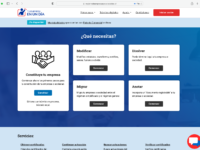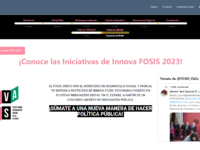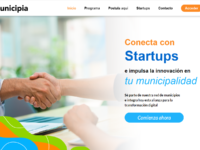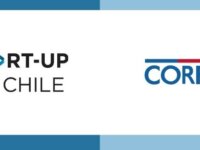The Ministry of Economy has piloted a web-based module that integrates a Business License application into the national Business Registry to incentivize businesses to apply for a license online, right after incorporating and obtaining a tax number. This innovation provides undigitalized municipalities an online channel with standard requirements for businesses in their jurisdictions, while gaining a free web-based back office workflow, with trusted digital legal and tax information to ease…
Case Study Library
Where innovations are collected and shared to disseminate and replicate good ideas

Innovations:
0
This website, as well as any data and map included herein, are without prejudice to the status of or sovereignty over any territory, to the delimitation of international frontiers and boundaries and to the name of any territory, city or area.
Innova FOSIS created a new way of designing public policies that opened up public problems to solutions from civil society, the private sector, and academia. It allows a space within the state to test solutions on a small scale, through the implementation of learning pilots. It is an open innovation competition, followed by a pilot model for learning management and finally a mechanism for scaling up the best solutions to public policy.
The Digital Hub: Accelerating Digital Municipalities (Hub digital: Acelerando Municipios Digitales) seeks to accelerate digital transformation in the Chilean municipal sector through the connection with startups. Using corporate venturing as a linkage mechanism benefiting the municipalities and communities themselves, for a solution will improve the quality of services provided to neighbors. Although corporate venturing is widely used in the private sector, we seek to validate its results in the…
Case Study
Exploration Projects – Promotion and development of disruptive and unconventional research in…

The National Agency of Research and Development has piloted a new program, called ‘Exploration Projects’, that allows funding of disruptive, unconventional, and high novelty science and research in all areas of knowledge. The program goals are to promote this type of science, propose the exploration of new and unconventional perspectives, methodologies, theories, and technologies, with the potential for significant reward to its discipline, field of knowledge, as well as society.
CGR has a great amount of available data that need to be exploited to improve its work, while deepening the digital transformation of the State to improve its quality.
The aim is to enhance data analysis through the use of algorithms to anticipate risks in the fight against corruption, as well as to improve the channels for citizen complaints.
We apply the use of data and technologies in our daily work, thus impacting the State.
The innovation is developed due to the need to integrate the process of financial reporting of projects with the acceleration program of Start-Up Chile, benefiting the entrepreneurs of the program and the Chilean Government itself. The process seeks to educate on the relevance of project financial planning, while preparing them to perform efficient and high standard financial reporting to the Chilean government.
The COVID-19 pandemic and lockdown measures led to an increase in gender-based violence worldwide. In this context, the Government of Chile and Argentina, in an international collaboration with Facebook, took on the challenge of creating a silent channel to provide emotional support and information to women who live with their aggressor. In Chile, the project was led by
the Ministry of Women and Gender Equality, and the Government (Innovation) Laboratory.
The Internet's potential to enable micro, small and medium-sized enterprises (MSMEs) to conduct international commercial transactions has yet to be fully realised. With an emphasis on computational approaches to trade policy design and delivery, SUBREI has launched a pilot programme to contribute to an open repository of rules in a digital form: an 'Internet of Rules' (IoR).
The IoR will expand access to cross-border transactions and improve use by people and machines alike.
Paseo Bandera is a street in the heart of Santiago that for 5 years was closed for work on the construction of the Santiago new subway line. Because of the closure, it was used for parking and passage of cars all day, being one of the worst streets in terms of quality in the center of the capital. In 2017, it was authorized for 10 months to be pedestrian. With artistic and technological innovation was possible to improve the quality of public space, accessibility, environment and mobility.
Case Study
Improving the Government oversight of Declaration of Assets and Interest in Chile through BI
The Statement of Interests and Assets system (abbreviated to DIP) allows monitoring assets and potential conflicts of interest of officials through business intelligence. Data mining is used to process new data to address audit teams. This innovation represents a change in the traditional auditing process that improves the efficiency and economy of our teams.





